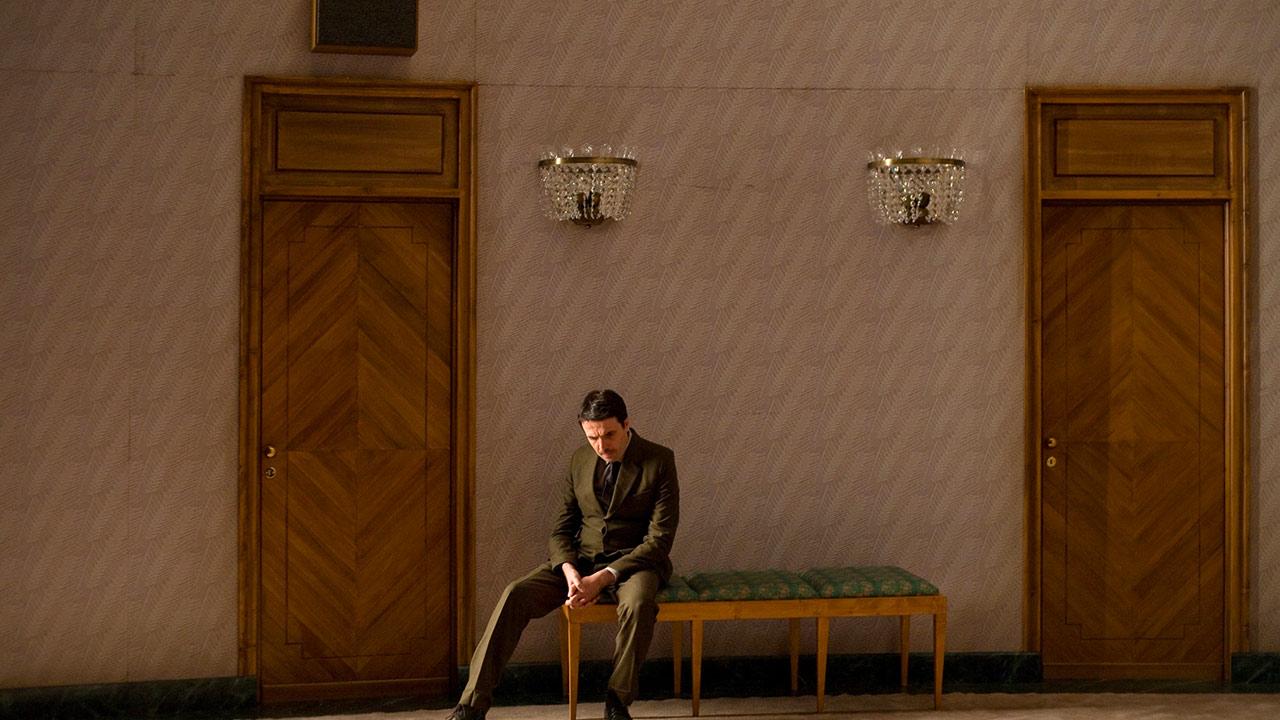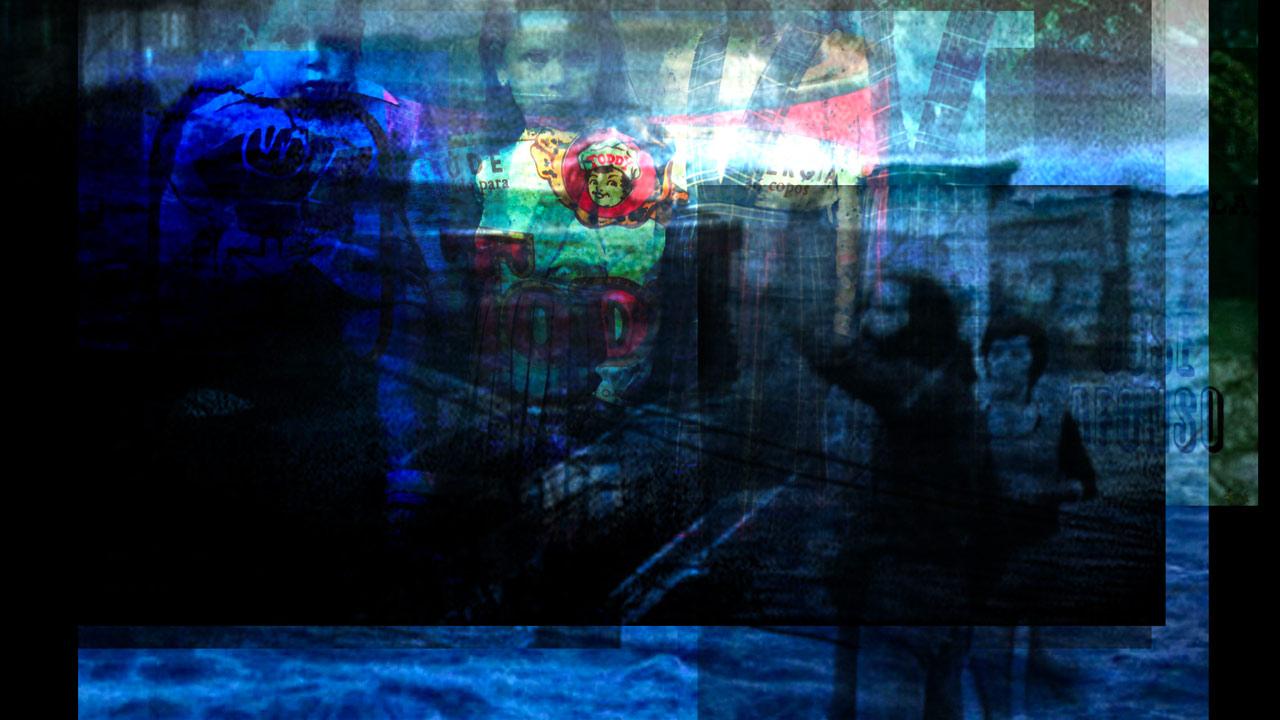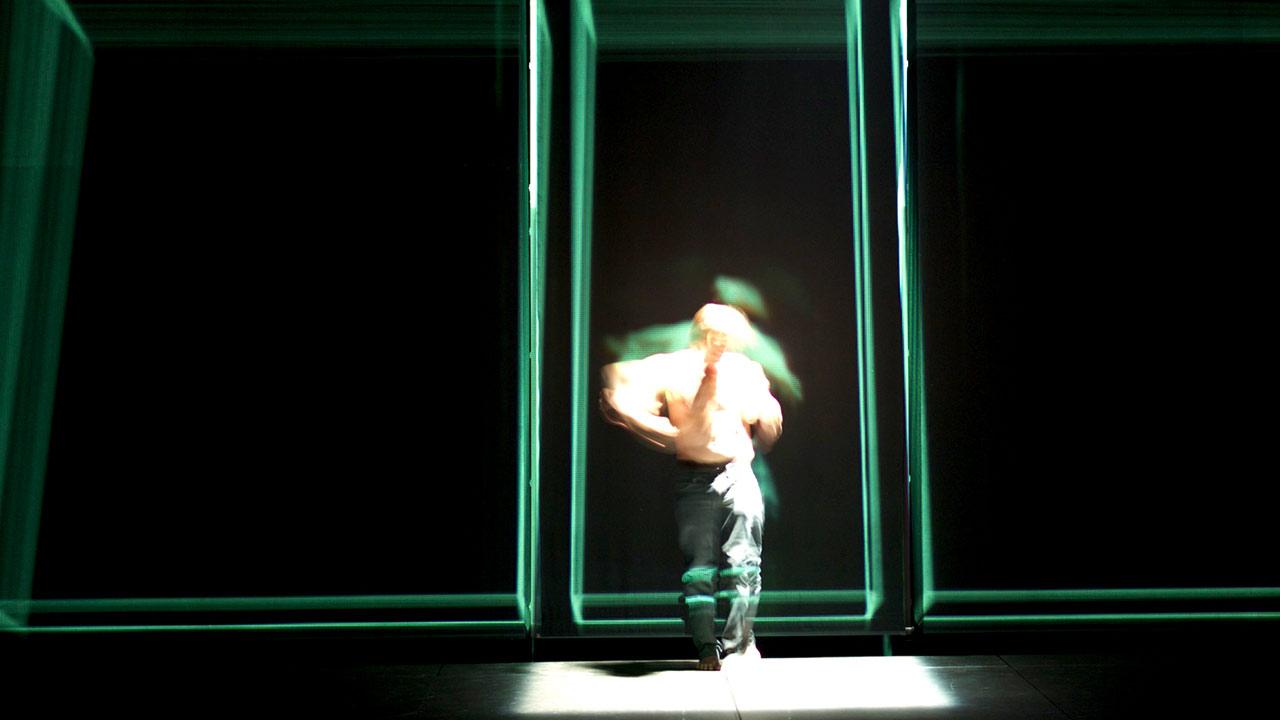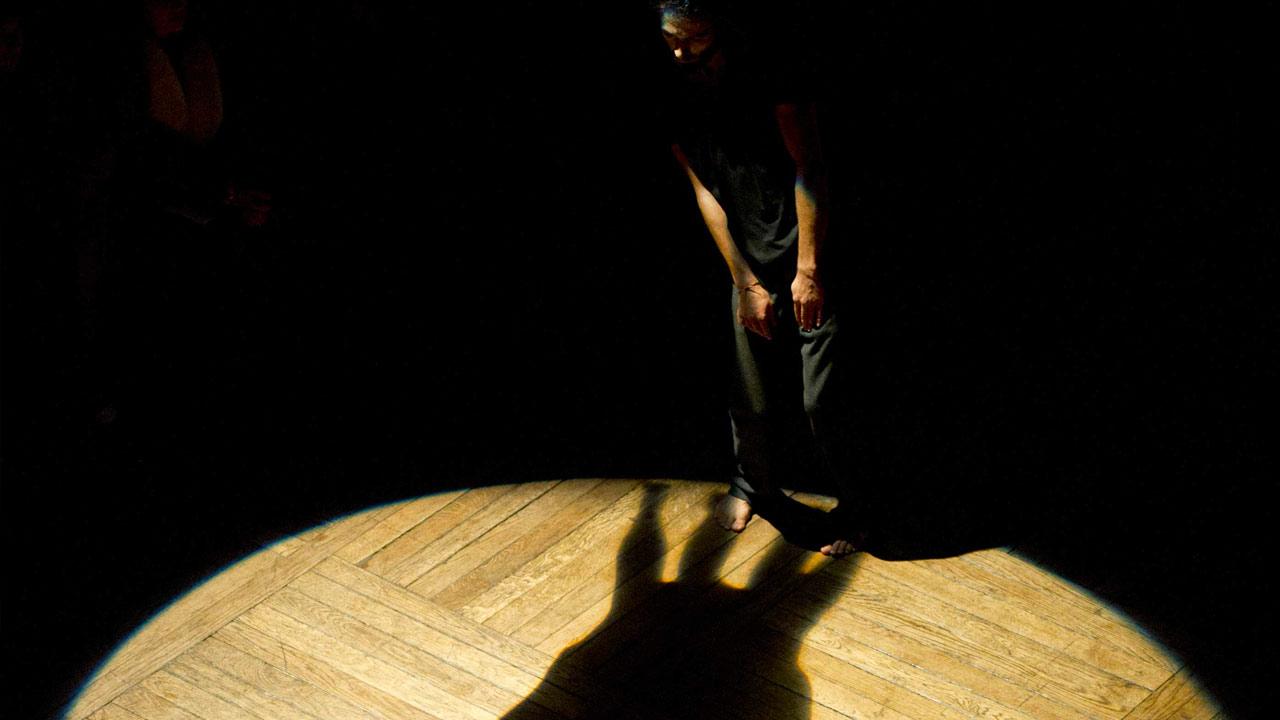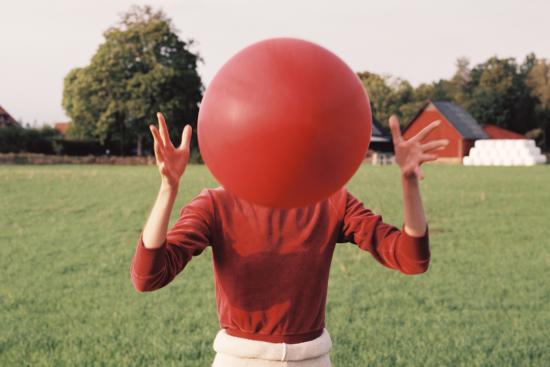Since its creation, the Foundation has contributed to the production of various works for the stage, paying particularly close attention to those that lie at the crossroads of the performing arts and the visual arts. The New Settings programme was created to further this commitment. Each year, performance works are selected following an international call for projects before being presented at the Théâtre de la Cité Internationale in Paris.
Choreographer Fanny de Chaillé and artist Philippe Ramette imagine a Passage à l’acte – ‘acting out’ in the language of psychology – with a certain measure of humour. Chaillé’s work explores the languages of dance, theatre and performance, whilst Ramette takes to the stage in quite literally twisted postures. Both share a fascination for the movement of bodies in space – an interest which they pursue here by enclosing dancers in sculptural prosthetics. In doing so, they take on a double challenge: for Chaillé, to lead gesture to triumph over physical constraint, and for Ramette, to reveal the mysterious sculptures behind his installations and photographs.
On a winter’s night in Hanover, two children aged six and seven years old elope to a sunny clime. Though in reality their jaunt took them only as far as the airport, director Cyril Teste prolongs this story through SUN, a piece imagined together with videographer Patrick Laffont and other members of the Collectif MxM. From the complicity of these two creators – Teste provided Laffont with a partial text to complete with his own images – emerges a form that is enchanting and exacting in equal measure. Produced live on stage, video here becomes the true language of the performance, offering up the movement, life and spontaneity of the young actors.
The year is 1942, and Polish resistance fighter Jan Karski is seeking to alert the Allies to the fate of Europe’s Jews. But his efforts are in vain…. Deeply marked by Yannick Haenel’s account of this story, Arthur Nauzyciel translates Karski’s neglected testimony to the stage, with invited artist Miroslaw Balka’s hypnotic, minimalist video work summoning the stifling atmosphere of the Warsaw ghetto at the centre of the piece. Entitled Jan Karski (Mon nom est une fiction), this work turns the theatre into a place of resistance – resistance against forgetting.
A story of borders without borders: those between the lived and the imagined, the spectator and the actor, the text and multimedia, are all swept away. Based on the (true) story of a migrant, Writing Spaces allows the audience to change the course of the narrative through tactile screens. Continuing their collaborative exploration of the possible links between playwriting and technological interfaces, actor-director Eli Commins and artist-scenographer Stéfane Perraud here offer a voyage through an environment of images and sounds whose coordinates are forever shifting.
